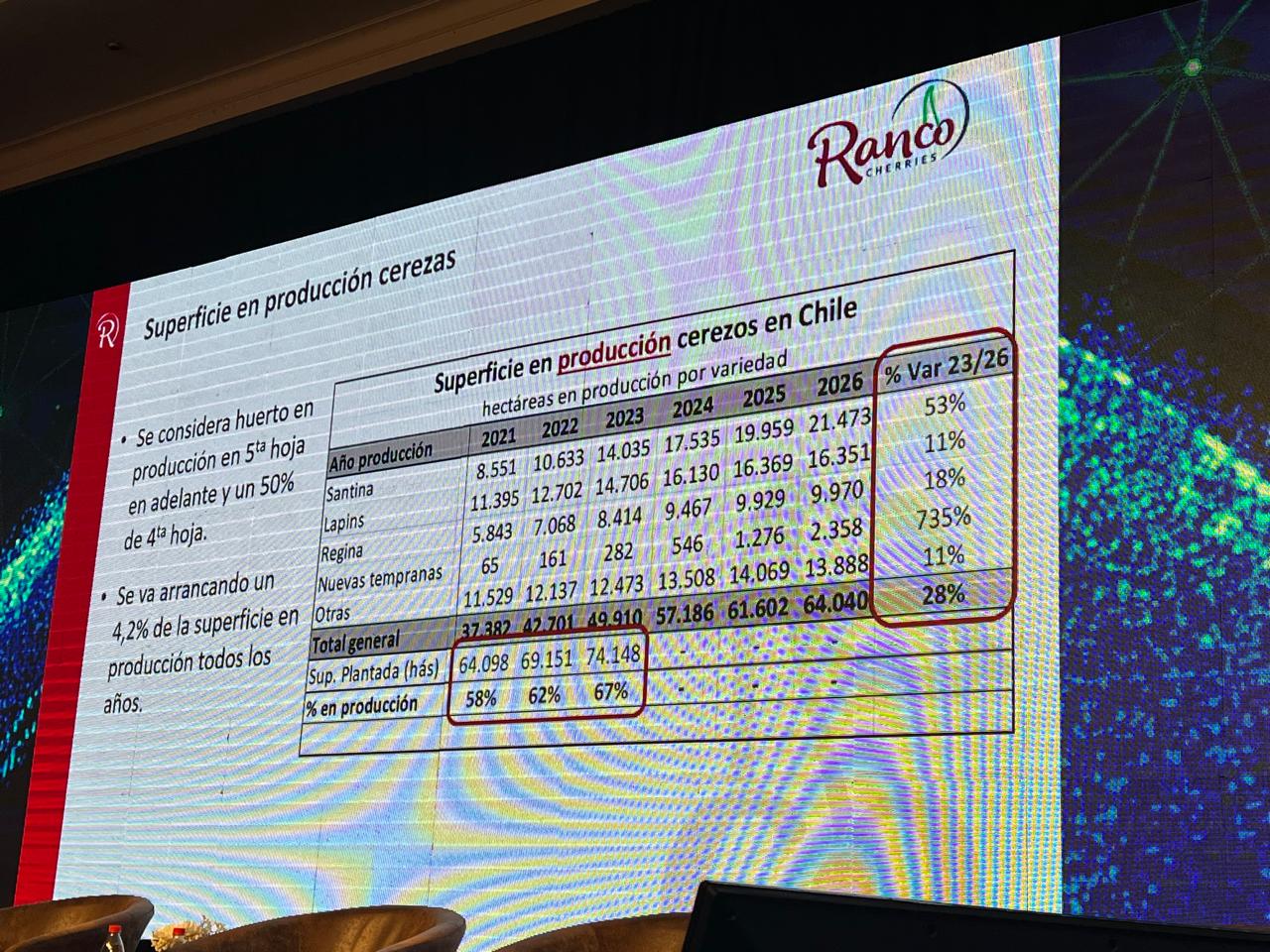The advantages that make cherry cultivation an excellent option to address the severe water shortage and reverse the loss of competitiveness in regional agriculture are numerous, including a higher price per kilo and a lower water consumption, ideal characteristics for the development of a more sustainable regional fruit growing.
For example, in 2023, the national average price per kilo of cherries was $6.2 (FOB), while the price per kilo of table grapes was $1.7. These data are part of a report presented by Víctor Muñoz, head of the Regional Strategic Program for Sustainable Fruit Growing of Coquimbo, during the Third International Seminar on premium cherries, held in Ovalle.
“It is essential to continue implementing water management measures and promoting sustainable practices to ensure the long-term sustainability of agriculture in the region, actions that will not only strengthen water security and agricultural productivity, but also provide solid support for investment and economic development, which is where productive alternatives are born, where cherry cultivation, for example, can help the region recover its lost competitiveness,” said Victor Muñoz.
This opinion is shared by Jorge Astudillo, agronomist and production manager at Agrícola Valle Arriba, who stated that “in cherries, we have found a crop that, in addition to water efficiency, also plays an important role as an alternative in the area in terms of the profitability it offers and the jobs it generates.”
Furthermore, according to the professional, the cultivation of this fruit meets the three aspects of sustainability. From an environmental point of view, it stands out for its low water consumption, with its water demand being much lower than that of citrus or avocados; while economically, it offers higher returns to producers, especially if the harvest is early; and socially, this crop generates hundreds of jobs throughout the production chain.
Promoting the development of sustainable fruit growing in the Coquimbo Region is the main objective of the Regional Strategic Program for Sustainable Fruit Growing of Coquimbo, an initiative implemented by Frutas de Chile and co-financed by the regional government and Corfo.
Although the water situation still presents significant challenges for the regional agricultural sector, there is an adaptability and resilience that has helped mitigate risks and try to maintain production levels.
For regional governor Krist Naranjo, “the future of agriculture must be sustainable, so the existence of crops that follow this path is great news, especially because it not only considers the profitability of the company, but also cares about people and the environment.”
Andrés Zurita, regional director of Corfo, adds that, on the part of the State, there are great efforts and support for the development of sustainable agriculture, where the cherry tree plays an important role. “Today we have several tools, such as the Associative Network, the Supplier Network, and the Market Network, which aim to develop and consolidate associative enterprises around the cherry tree, explore new markets for early fruits, and improve the productivity and quality of the fruits,” said Zurita.
Source: Portal Agro Chile
Image: Portal Agro Chile
Cherry Times - All rights reserved










